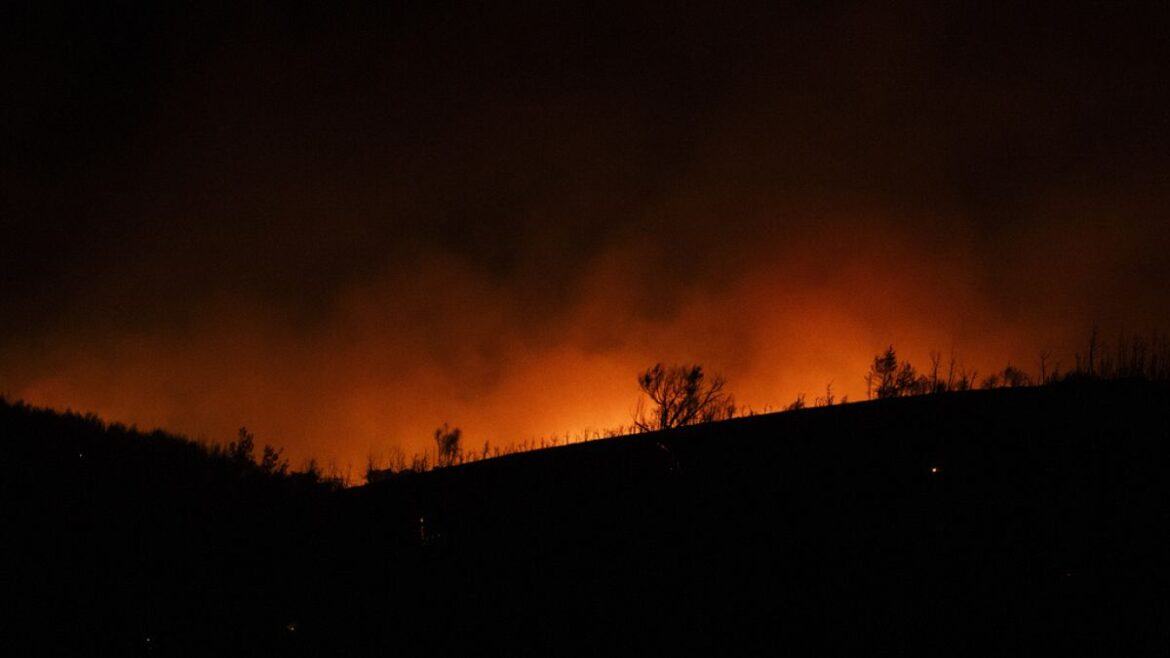Hundreds of firefighters supported by around 30 water-dropping planes were battling a major forest fire burning out of control on the northern outskirts of the Greek capital on Monday.
A children’s hospital and a military hospital were evacuated early Monday morning, firefighters said, while evacuation orders were issued for more than a dozen locations, including the city of Marathon and several Athens suburbs. Authorities in nearby suburbs opened gyms and made hotel rooms available to evacuees.
By early morning on Monday, more than 500 firefighters and 16 firefighting teams specially trained to fight wildfires were battling the flames, with the help of nearly 200 vehicles and a large number of volunteers. About 30 water-dropping planes and helicopters were deployed in two waves. Authorities said the flames were more than 25 meters (80 feet) high at the time.
Firefighters urged residents to follow evacuation orders issued by civil protection. Authorities noted that some people who refused to leave their homes found themselves trapped and had to be rescued, putting the lives of firefighters at risk.
According to local media, two firefighters were slightly injured, while several civilians were treated in hospitals for smoke inhalation.
The fire caused a cloud of smoke in the centre of the Greek capital, darkening the sky.
The fire started on Sunday afternoon about 35 kilometres (22 miles) from Athens and was fanned by strong winds that quickly caused it to spread out of control, fuelled by dry conditions after repeated heatwaves this summer, which followed a particularly dry winter.
“During the night, the wind remained strong, creating dangerous situations“, said Colonel Vassileios Vathrakogiannis, spokesman for the fire service:
“Unfortunately, their intensity is expected to increase in the coming hours, and in any case, citizens in areas where the fire is developing must follow the authorities’ guidelines..” He added.
Half the country on red alert
Meteorologists and government officials have warned of an increased risk of wildfires, with half the country on red alert.
This year’s June and July were the warmest months on record in Greece, which also experienced the warmest winter in its history.
Wildfires are common in Greece during hot, dry summers, but authorities have said climate change is fueling larger and more frequent blazes.
In 2018, a massive fire ravaged the seaside town of Mati, east of Athens, trapping residents in their homes and on the roads as they tried to flee by car.
More than 100 people died, some of them drowning while trying to swim away from the flames.
Last year, wildfires in Greece killed more than 20 people, including 18 migrants who became trapped by flames while walking through a forest in northeastern Greece and were caught in a massive blaze that burned for more than two weeks.



